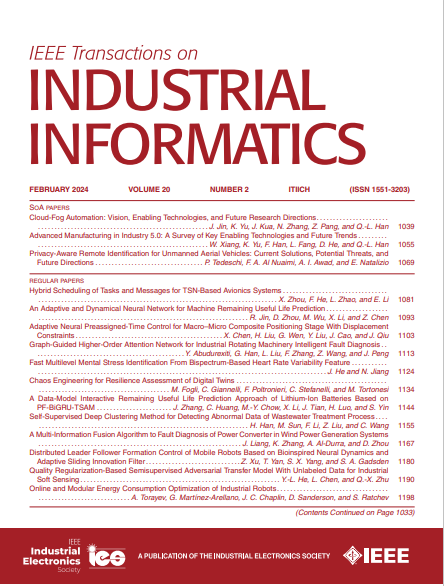基于图神经网络和深度强化学习的柔性作业车间调度
IF 9.9
1区 计算机科学
Q1 AUTOMATION & CONTROL SYSTEMS
引用次数: 25
摘要
近年来,深度强化学习(DRL)被用于学习优先级调度规则(pdr),以解决复杂的调度问题。然而,现有的工程在处理灵活性方面面临挑战,这允许在多台机器中的一台上安排操作,并且在实践中经常需要。这种一对多关系在决策制定和状态表示方面都带来了额外的复杂性。本文考虑了众所周知的柔性作业车间调度问题,并提出了一种新的DRL方法来学习高质量的端到端pdr,从而解决了这些问题。将操作选择和机器分配结合为一个复合决策。此外,基于一种新的异构图表示调度状态,提出了一种基于异构图神经网络的架构来捕捉操作和机器之间的复杂关系。实验表明,该方法优于传统的pdr,并且计算效率高,即使在更大的规模和训练中未见的不同属性的实例上也是如此。本文章由计算机程序翻译,如有差异,请以英文原文为准。
Flexible Job-Shop Scheduling via Graph Neural Network and Deep Reinforcement Learning
Recently, deep reinforcement learning (DRL) has been applied to learn priority dispatching rules (PDRs) for solving complex scheduling problems. However, the existing works face challenges in dealing with flexibility, which allows an operation to be scheduled on one out of multiple machines and is often required in practice. Such one-to-many relationship brings additional complexity in both decision making and state representation. This article considers the well-known flexible job-shop scheduling problem and addresses these issues by proposing a novel DRL method to learn high-quality PDRs end to end. The operation selection and the machine assignment are combined as a composite decision. Moreover, based on a novel heterogeneous graph representation of scheduling states, a heterogeneous-graph-neural-network-based architecture is proposed to capture complex relationships among operations and machines. Experiments show that the proposed method outperforms traditional PDRs and is computationally efficient, even on instances of larger scales and different properties unseen in training.
求助全文
通过发布文献求助,成功后即可免费获取论文全文。
去求助
来源期刊

IEEE Transactions on Industrial Informatics
工程技术-工程:工业
CiteScore
24.10
自引率
8.90%
发文量
1202
审稿时长
5.1 months
期刊介绍:
The IEEE Transactions on Industrial Informatics is a multidisciplinary journal dedicated to publishing technical papers that connect theory with practical applications of informatics in industrial settings. It focuses on the utilization of information in intelligent, distributed, and agile industrial automation and control systems. The scope includes topics such as knowledge-based and AI-enhanced automation, intelligent computer control systems, flexible and collaborative manufacturing, industrial informatics in software-defined vehicles and robotics, computer vision, industrial cyber-physical and industrial IoT systems, real-time and networked embedded systems, security in industrial processes, industrial communications, systems interoperability, and human-machine interaction.
 求助内容:
求助内容: 应助结果提醒方式:
应助结果提醒方式:


